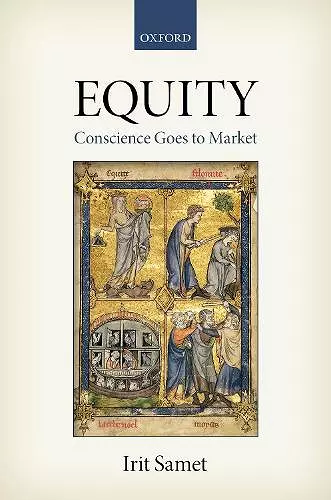Equity
Conscience Goes to Market
Format:Hardback
Publisher:Oxford University Press
Published:13th Dec '18
Currently unavailable, and unfortunately no date known when it will be back

This book sets out to defend the claim that Equity ought to remain a separate body of law; the temptation to iron-out the differences between neighbouring doctrines on the two sides of the Equity/Common Law divide should, in most cases, be resisted. The theoretical part of the book is argues that the characteristics of Equity, namely, appeal to conscience, flexibility, retroactivity and the use of morally-freighted jargon, are essential for the implementation of a legal ideal that has been neglected by the Common Law: âAccountability Correspondenceâ. According to this fundamental legal ideal, liability imposed by legal rules should correspond to the pattern of moral duty in the circumstances to which the rules apply. Equity promotes this ideal in the fields of property and obligations by disallowing parties to exploit the rule-like nature of Common Law norms in a way that breaches their moral duty to the other party. By reference to various equitable doctrines, it is argued that the faults identified by critics of Equity, especially from the perspective of the Rule of Law, are highly exaggerated, and that the criticism often reflects a political belief in the supremacy of individualism and free market over empathy and social justice. The theoretical part is followed by three chapters, each dedicated to an in-depth analysis of the equitable doctrines of fiduciary duties, proprietary estoppel, and clean hands. For each doctrine, it is shown how their equitable characteristics are indispensable for achieving their social, ethical and economic purpose.
Irit Samet's Equity develops a novel and philosophically rich interpretation of the body of law originating in the English Court of Chancery ... known as 'Equity'. * Manish Oza, University of Toronto Law Journal *
Irit Samet revitalises the 'pro-equity' and 'pro-conscience' sides of these debates. In doing so, she stimulates thought about both 'conscience' and the 'market', and relationships between them, opening avenues for critically assessing Equity's role in societies that have common law systems. * R. Madden, Social & Legal Studies *
Samet's book provides a novel theoretical account of just how conscience might work to secure law's virtue as law, its correspondence with morality. At the same time philosophical, doctrinal and lyrical, this book offers a fresh take on what it means for equity to be organized around the idea of conscience. * Professor Larissa Katz, Jerusalem Review of Legal Studies *
Professor Samet offers a distinctive account of what equity is and how it works. She shows a thorough grasp of equitable doctrine over many different areas, from contract law to fiduciary law to equitable defenses, and over jurisdictions throughout the common law world. She has a penchant for fairly developing counter-arguments; her work is refreshingly free from straw men. The writing is elegant and clear, and the metaphors sometimes brilliant. The learning is manifest and lightly worn. * Samuel L. Bray, Jerusalem Review of Legal Studies *
Equity: Conscience goes to Market is a wonderful book, one that deeply enriches our understanding of Equity. * Dennis Klimchuk, Jerusalem Review of Legal Studies *
Samet's book is excellent. It deserves to be widely read. Developing an interpretive theory of equity is no easy task, recognizing just how far equitable jurisdiction reaches across substantive fields, how variegated are its progeny, and how wide are the differences in doctrine and institutional culture that characterize equity traditions around the world. Samet proves more than equal to the challenge, and her book should serve as a source of inspiration for equity scholars in years to come. * Paul B. Miller, Jerusalem Review of Legal Studies *
ISBN: 9780198766773
Dimensions: 242mm x 164mm x 20mm
Weight: 524g
236 pages